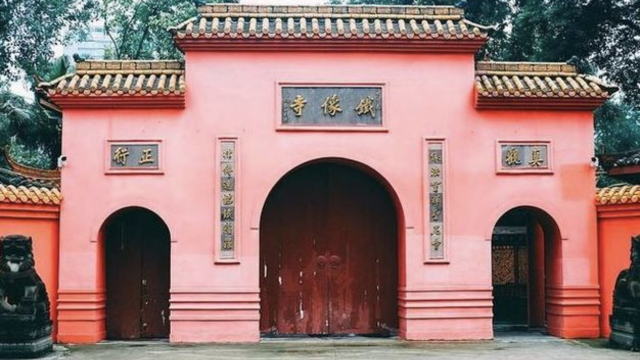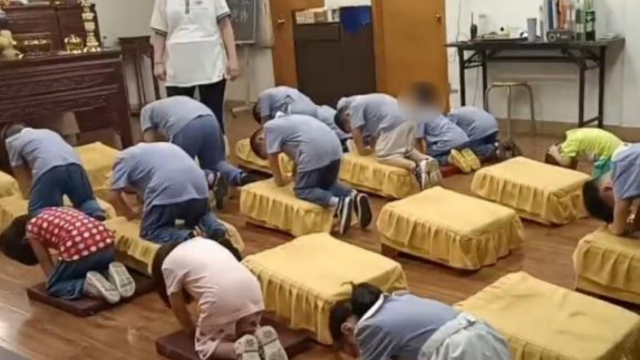China’s censorship has silenced people’s voices and rights. When the WHO cheers for its response, we should ask: At what and whose expenses?
In recent interviews, Dr. Bruce Aylward, the leader of the World Health Organization team that visited China, lavishly praised the Chinese government’s response to the coronavirus outbreak. “I think the key learning from China is speed — it’s all about the speed,” Aylward said.
Aylward was referring to Chinese authorities’ building a makeshift emergency hospital in 10 days, and placing close to 60 million people under quarantine, among other things. He didn’t mention their swiftness in silencing doctors who warned about the virus, shutting down online discussion about it and detaining people who criticize the government’s handling of the outbreak.
Even if the draconian containment measures the Chinese authorities later adopted — after they delayed and bungled the early response — were helpful, we should ask: At what and whose expenses?
Stories Emerged Despite Censorship
If free speech existed in China, global media sites such as Facebook and Twitter as well as Chinese internet platforms would be inundated with desperate calls for help and harrowing stories of deaths and illnesses posted by people living under quarantine. And when you see on your own social media feed the massive sufferings as a result of these “speedy” measures, you may think differently of them.
But most Chinese people can’t get on Twitter or Facebook to tell their COVID-19 stories, as these and many other global platforms are blocked in China, and government censors speedily scrub away posts describing virus-related events on Chinese social media platforms.
And many who might wish to never say anything on the internet — because it’s well-known in China that expressing criticism toward the government can bring you trouble, even long prison time.
Yet, despite the censorship, many chilling stories still emerged: A boy with cerebral palsy died because no one took care of him after his father was taken to be quarantined. A woman with leukemia died after being turned away by several hospitals because of concerns about cross-infection. A mother desperately pleaded to the police to let her leukemia-stricken daughter through a checkpoint at a bridge to get chemotherapy. A man with kidney disease jumped to his death from his apartment balcony after he couldn’t get access to health facilities for dialysis. And at least 10 people died after a hotel being used as a quarantine facility collapsed.
Silent Suffering
The silent sufferings inflicted by the ruling Chinese Communist Party have been integral to its “successes” in disaster relief and emergency response.
China “successfully” contained the 2002-03 outbreak of severe acute respiratory syndrome, but SARS victims, including many health workers, suffered serious after-effects due to aggressive hormone treatment for which they were never appropriately compensated. The city of Wenchuan was “miraculously” rebuilt after a 7.9 magnitude earthquake ravaged the area in 2008. Yet parents who lost their children to shoddy school buildings are still being harassed by police, and the activist who investigated the deaths, Huang Qi, is serving a 12-year prison term. China has built two-thirds of the world’s high-speed rail track in the past 30 years, but many people say the government covered up the real death toll of the 2011 Wenzhou high-speed train crash.
The latest estimates of the number of new coronavirus cases in China suggest that the outbreak is waning. I hope so. Just as in previous emergencies, Beijing is taking the credit. “The Chinese Communist Party and the government have always placed people’s safety and health in the first place, adopted a series of practical and effective prevention and control measures, resolutely stopped the spread of the epidemic,” state media said.
The party’s practice of whitewashing its misdeeds seems inevitable, so some Chinese have taken it upon themselves to be keepers of history. A Chinese Twitter user wrote that many of those who died “will not even be numbers,” due to censorship, and that “the only thing left is the agonizing cry of their family.” He urged his followers to “tell the story of your family, friends or people around you. …This could be counted as leaving a little record for this era of terror.” There were nearly a thousand replies to the tweet, mostly personal stories collected by this user and others.
The WHO shouldn’t be cheering on the Chinese government’s response without grappling with the human toll authorities have tried to sweep under the rug. People across China won’t soon forget the human rights abuses associated with the coronavirus response Dr. Aylward so lightly dismisses.
Source: Yaqiu Wang. The Human Toll of China’s Coronavirus Control Efforts. © 2020 by Human Rights Watch.












